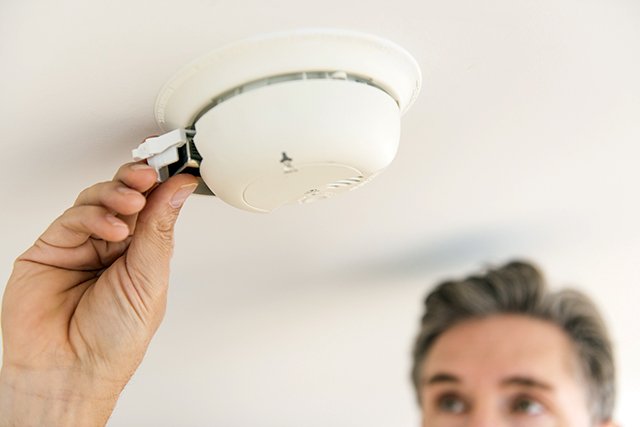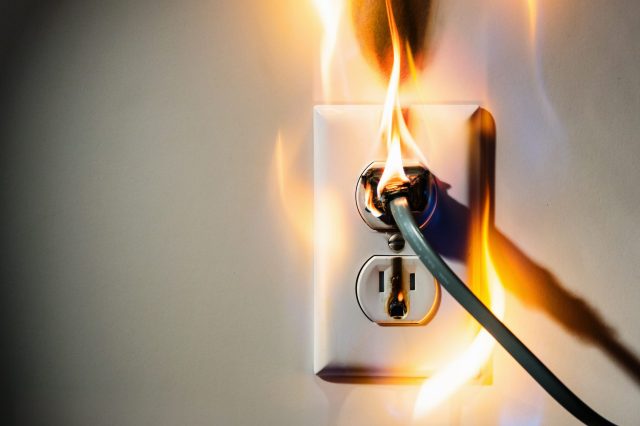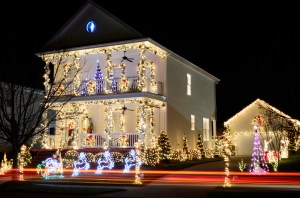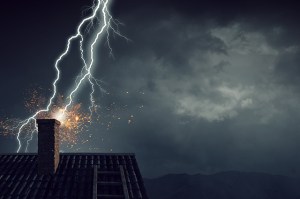It’s a good idea to occasionally assess your home’s potential electrical hazards.
The following electric safety tips from the Electrical Safety Foundation International and the National Fire Protection Association can help you keep your home safe, reducing the risk of property loss, accidental injuries and fatalities.
Have questions about your homeowners insurance coverage? Schedule a meeting with a AAA Insurance agent.
Costs of Electrical Hazards
Fires are one of the major dangers associated with electrical hazards. From 2016-2020, an average of 30,740 home fires were caused by an electric source, resulting in 390 deaths, over 1,090 injuries and $1.4 billion in direct property damage annually, according to the latest report by the NFPA.
Anything with a cord or plug around the house could be a hazard, especially if misused or improperly maintained. Fires can spark from issues in wiring and electrical distribution systems from household appliances, lighting, cooking tools, office equipment and more.
Assessing Your Home’s Risks
Being aware of potential hazards is half of the battle, and you don’t have to be an expert to spot an electrical problem.
There are several warning signs of overloaded electrical systems, including frequently blowing fuses, tripping circuit breakers and lights dimming when other devices are used. If you hear a buzzing sound coming from outlets or switches, or they are warm to the touch, you could have an overloaded electrical system.
If your home is a few decades old or you recently had a major appliance installed, you should have your place of residence inspected by a licensed electrician. Your home may need to have new circuits installed in order to meet appliances’ demands.
If you find yourself relying regularly on extension cords and/or power strips, it’s likely your home doesn’t have enough outlets to suit your needs. Consider having additional outlets installed. While do-it-yourself projects are growing in popularity, when it comes to electrical work, “hiring a qualified, licensed electrician” is strongly recommended by ESFI.

Taking Everyday Precautions
One of the first things you can do to give yourself some peace of mind is installing and maintaining your home’s smoke detectors. Making sure you have enough fire alarms for your home’s size and that they are placed in the right locations can help save lives. Testing your detectors once a month, changing the batteries at least once a year and replacing them every ten years can help you combat house fires, electrical and otherwise.
Always make sure to childproof outlet covers and other hazardous areas if they can be easily reached by tiny hands. Tamper-resistant electrical receptacles are a great option.
Lighting and Appliances
Improper use of electronics can lead to issues like damaging your devices and appliances as well as increasing the chance electrical risks will happen.
A best practice of electric safety is to regularly inspect electrical cords for damage, like sharp bends and cracks. Contact with a single strand of exposed wire can result in an electrical burn or shock. If a device’s power cord is damaged, stop using it.
Never place anything flammable too close to lamps or other heat-producing appliances. Though it may seem like common sense, it’s still an electrical safety tip worth mentioning. Loose curtains and drapes can be inadvertently moved by fans, drafts and when people or pets walking by. Art, family photos, posters, maps and other wall hangings can fall down, making contact with an appliance or loosening wires.
Use light bulbs with the correct wattage for a specific appliance. Invest in energy-efficient lighting and appliances, and unplug devices when they’re not being used. These acts will not only reduce the risk of electrical hazards, they will help you save money too.
Avoid overloading outlets and running cords under rugs, doors or windows. Not only could they become a tripping hazard, covered cords can overheat and become potential fire hazards.
The Dos and Don’ts of Extension Cords
Never use an extension cord that becomes warm or is damaged; exposed wiring is dangerous. You also want to make sure you are using the right kind of extension cord; there are different types for indoor versus outdoor use. Finally, don’t plug major appliances into an extension cord – plug them directly into a wall outlet instead. Extension cords are not intended for permanent use.
Preparing for Natural Disasters and Storms
When storms or natural disasters are in the forecast, the risk of losing power reminds us of how dependent we are on electricity. Before a storm hits, charge necessary devices, like cell phones.
Natural disasters also increase the risk of electrical hazards. If flooding is possible, consider unplugging electronics and moving them as high as possible to avoid water damage. Carry essential devices in plastic bags or other waterproof containers.
If you’re outside when a storm rolls in, stay 10 feet away from fallen overhead power lines. Call your area’s electrical company or emergency services to alert them of the issue. If you are in your car when a wire falls, stay inside your vehicle.
Practicing electric safety in and around your home can help save lives and lessen financial loss.
Do you have any other electrical safety tips to add? Share them in the comments.
Make sure your home is fully protected with homeowners insurance from AAA.













